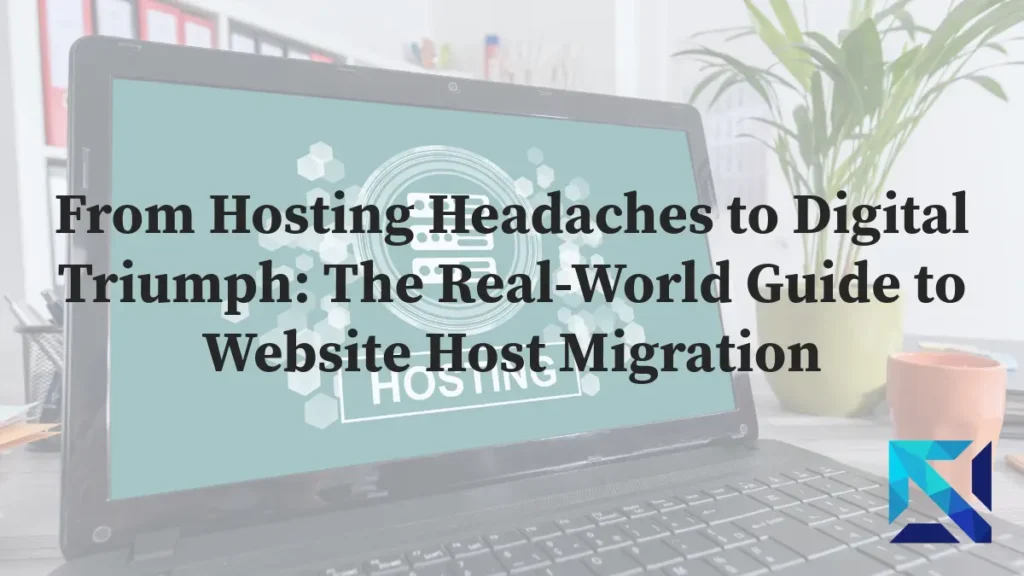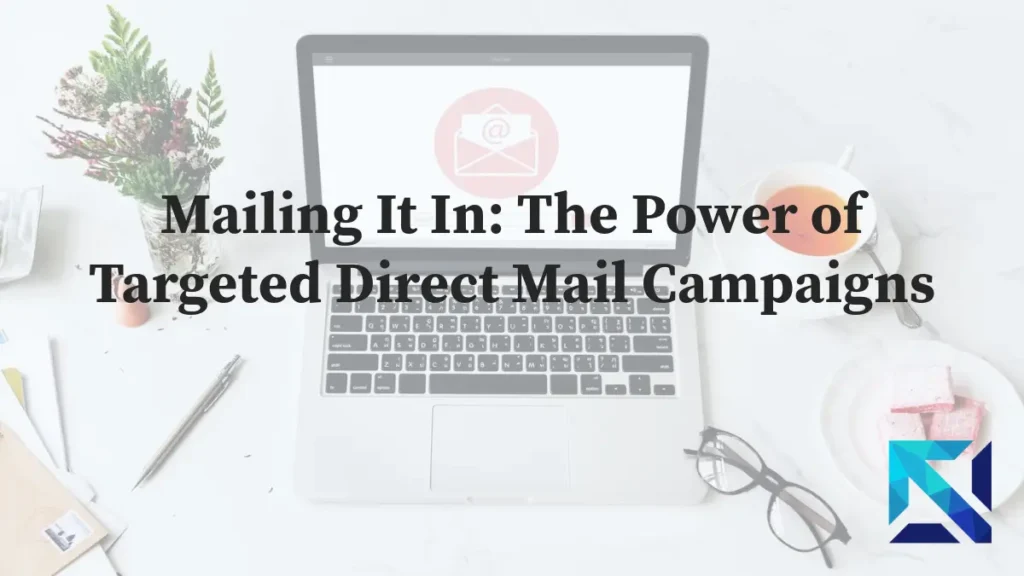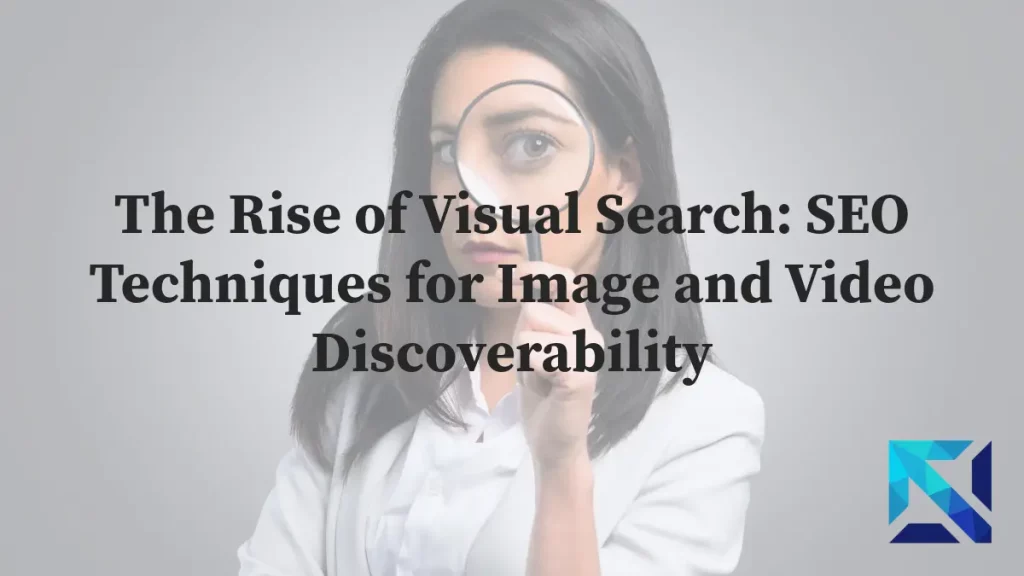Supercharge Social Media for SEO! Proven Strategies
In the ever-evolving landscape of digital marketing, the symbiotic relationship between social media and search engine optimization (SEO) has become increasingly crucial. As the online world continues to shift, savvy marketers and business owners alike have recognized the immense potential in harnessing the power of social media for SEO.
Gone are the days when SEO was solely about technical optimizations and keyword strategies. Today, the digital sphere demands a more holistic approach, one that seamlessly integrates social media into the heart of a comprehensive SEO plan. By leveraging the reach, engagement, and versatility of social media, you can unlock new avenues for boosting your online visibility, driving targeted traffic, and ultimately, elevating your search engine rankings.
In this in-depth guide, we’ll delve into the intricate world of social media SEO amplification, uncovering proven strategies and best practices that will empower you to master this dynamic intersection. Whether you’re a seasoned digital marketer, an SEO specialist, or a business owner seeking to expand your online presence, this article will equip you with the knowledge and tools necessary to navigate the ever-evolving landscape of social media and SEO.
The Symbiotic Relationship Between Social Media and SEO
In the digital age, visibility is the key to success. To be seen, you need to be where your audience is – and today, that means being present and active on social media platforms. But it’s not just about being seen; it’s about being found. This is where the power of SEO comes into play.
Social media SEO amplification is a strategic approach that harnesses the synergistic relationship between social media and search engine optimization. By leveraging the reach and engagement of social platforms, you can strategically boost your search engine visibility, driving more qualified traffic to your website.
The underlying premise is simple: when you share content on social media, you increase its visibility. The more people see and interact with your content, the more signals you send to search engines about its relevance and value. These social signals – such as likes, shares, comments, and backlinks – can indirectly influence your SEO performance, even though they may not directly impact your search rankings.
Here’s how the social media SEO amplification process works:
1. Increased Visibility: When you share your content on social media, it reaches a wider audience beyond just those who find you organically through search. This broader exposure can lead to increased traffic to your website, which search engines often interpret as a positive signal.
2. Enhanced Engagement: High-quality, engaging content that resonates with your social media followers can encourage interactions like likes, comments, and shares. These interactions, in turn, signal to search engines that your content is valuable and worth ranking.
3. Improved Backlink Profile: As your content gets shared and discussed on social media, it may also attract backlinks from other websites. Backlinks are a crucial factor in SEO, as they demonstrate the authority and relevance of your content to search engines.
4. Strengthened Brand Authority: A strong social media presence can help build your brand’s credibility and authority within your industry. This brand recognition can positively impact your SEO performance, as search engines tend to favor established, trustworthy websites.
5. Targeted Discoverability: Strategically using relevant hashtags and optimizing your social media profiles can make your content more discoverable to your target audience, increasing the chances of driving qualified traffic to your website.
By understanding and leveraging this symbiotic relationship between social media and SEO, you can unlock a powerful strategy to amplify your online visibility, drive more high-intent traffic, and ultimately, improve your search engine rankings.
The Indirect Influence of Social Signals on SEO
One of the common misconceptions about social media’s impact on SEO is the direct influence of social signals, such as likes, shares, and comments, on search engine rankings. While it’s true that search engines like Google have stated that they do not directly factor in social signals as a ranking factor, these interactions can still have an indirect, yet significant, impact on your SEO performance.

The key lies in understanding the underlying mechanisms that connect social media engagement to improved search engine visibility.
1. Increased Website Traffic: When your content gets shared and engaged with on social media, it can lead to a surge in website traffic. Search engines often interpret high-traffic websites as being more relevant and authoritative, which can positively impact your rankings.
2. Enhanced User Engagement: Highly engaging content that sparks conversations and interactions on social media sends signals to search engines that your website provides a valuable user experience. This can lead to increased time spent on your site, reduced bounce rates, and other user engagement metrics that search engines consider as ranking factors.
3. Improved Backlink Generation: As your content gains traction on social media, it may also attract backlinks from other websites that find your content valuable and worthy of citation. These high-quality backlinks are a crucial component of off-page SEO, as they demonstrate the credibility and authority of your website to search engines.
4. Strengthened Brand Awareness and Reputation: A strong social media presence can help build your brand’s visibility, credibility, and reputation within your industry. This brand recognition can influence how search engines perceive and rank your website, as they tend to favor established, trustworthy brands.
5. Enhanced Content Discoverability: Effective use of relevant hashtags, targeted social media advertising, and strategic partnerships with industry influencers can improve the discoverability of your content, making it more accessible to your target audience. This, in turn, can lead to increased traffic, engagement, and potential backlink opportunities.
While social signals may not directly impact your search rankings, the indirect benefits of leveraging social media for SEO are undeniable. By crafting a comprehensive strategy that seamlessly integrates social media and SEO, you can create a powerful synergy that amplifies your online visibility, drives more qualified traffic, and ultimately, boosts your search engine performance.
The Advantages of Using Social Media for SEO
Mastering the integration of social media and SEO can unlock a myriad of benefits for your online presence. By strategically leveraging the power of social platforms, you can significantly enhance your brand’s visibility, authority, and overall digital marketing success. Let’s explore the key advantages of using social media to amplify your SEO efforts:
1. Increased Brand Awareness and Visibility
In the digital age, social media is the ultimate bullhorn for broadcasting your brand message and website to a vast, engaged audience. By maintaining an active presence on popular social platforms, you can substantially increase your brand’s visibility and reach beyond what you might achieve through search engine optimization alone.
2. Enhanced Engagement and Relationship Building
Social media provides a dynamic platform for interacting with your target audience, allowing you to humanize your brand and build meaningful relationships. By engaging with your followers, responding to comments, and fostering conversations, you can enhance brand loyalty and trust – factors that can indirectly contribute to improved search engine rankings.
3. Improved Content Reach and Distribution
Social media platforms offer an efficient and versatile channel for sharing your valuable content, whether it’s blog posts, infographics, videos, or any other type of multimedia. By strategically distributing your content across relevant social networks, you can significantly expand its reach and ensure it is discovered by your target audience.
4. Boosted Website Traffic
By crafting engaging social media posts and including clear calls-to-action, you can effectively drive qualified traffic from your social platforms to your website. This increase in website visits can have a positive impact on your SEO, as search engines often interpret high traffic as a sign of relevance and authority.
5. Enhanced Brand Authority and Credibility
A strong social media presence, marked by positive interactions, shares, and mentions, can build valuable social proof for your brand. This, in turn, can enhance your perceived authority and credibility in the eyes of both your audience and search engines, potentially leading to improved search rankings.
6. Valuable Backlink Generation (Indirectly)
While social media links themselves may not directly pass on SEO value, the increased visibility and brand awareness you gain can lead to the acquisition of high-quality backlinks from other websites. These backlinks are a crucial component of off-page SEO, as they demonstrate the trustworthiness and relevance of your content to search engines.
7. Potential Future Ranking Signals
There is ongoing speculation that search engines, such as Google, may eventually start incorporating social media engagement metrics as indirect ranking factors. By building a robust social media presence and maintaining consistent activity, you can future-proof your SEO strategy and position your brand for potential algorithmic changes.
By understanding and leveraging these advantages, you can create a powerful synergy between your social media and SEO efforts, driving increased visibility, traffic, authority, and ultimately, improved search engine rankings for your website.
Optimizing Profiles On Social Media for SEO
Your social media profiles serve as an extension of your brand’s online presence, and as such, they should be optimized to reflect your identity, values, and core messaging. Proper optimization of your social media profiles can enhance your discoverability, increase brand awareness, and ultimately, support your overall SEO strategy.

Here are some key steps to optimize your social media profiles for improved SEO:
1. Consistent Branding and Username
Establish a consistent brand identity across all your social media platforms by using the same username, profile picture, and cover/header images. This cohesive branding makes it easier for users to recognize and remember your brand, contributing to improved online visibility.
2. Keyword-Rich Bio and Description
Your bio and profile description are prime real estate for incorporating relevant keywords that align with your business, products, or services. Strategically weave in these keywords to make your profile more discoverable in search engine and social media platform searches.
3. Prominent Website Link
Include a prominent and clickable link to your website within your social media profile. This not only drives traffic to your site but also signals to search engines the connection between your social media presence and your primary online hub.
4. Location and Contact Information
Ensure that your profile includes accurate location and contact information, such as your business address, phone number, and email. This data can help search engines better understand and index your business, potentially improving your local SEO performance.
5. Regular Profile Updates
Regularly refresh and update your social media profiles with new content, images, and information. This signals to search engines that your profiles are active and relevant, potentially boosting their visibility in search results.
6. Leverage Relevant Hashtags
Incorporate relevant and targeted hashtags in your social media posts and profile descriptions. This can increase the discoverability of your content, making it more accessible to users searching for specific topics or industry-related keywords.
7. Optimized Multimedia Content
When sharing visual content like images and videos, ensure they are properly optimized for search engines. This includes using descriptive file names, ALT text, and captions that incorporate relevant keywords.
By consistently applying these optimization techniques across your social media profiles, you can enhance your brand’s online presence, improve your discoverability in search and social media platforms, and ultimately, support your overall SEO efforts.
Creating Shareable and SEO-Friendly Social Media Content
Crafting social media content that is both engaging and optimized for search engines is a crucial component of your social media SEO amplification strategy. By understanding your target audience’s preferences and creating content that resonates with them, you can increase shares, boost visibility, and drive more qualified traffic to your website.

Here are some best practices for creating shareable and SEO-friendly social media content:
1. Understand Your Audience
Conduct thorough research to understand the needs, interests, and pain points of your target audience. This knowledge will guide you in creating content that truly resonates and compels your followers to engage, share, and interact.
2. Focus on Quality over Quantity
In the world of social media, it’s not just about posting frequently; it’s about creating high-quality, valuable content that your audience finds genuinely useful and worth sharing. Prioritize content that is well-researched, informative, and visually appealing.
3. Optimize for Search
Incorporate relevant keywords and phrases throughout your social media content, including in captions, descriptions, and hashtags. This will help search engines better understand the context and relevance of your posts, potentially improving their visibility in search results.
4. Craft Compelling Headlines
The headline or title of your social media posts is often the first thing users see, so make it count. Use attention-grabbing, keyword-rich headlines that accurately reflect the content and pique your audience’s interest.
5. Leverage Visuals
Social media is a highly visual medium, so ensure that your content includes eye-catching images, videos, or graphics. Not only do visuals make your posts more engaging, but they can also be optimized for search engines through the use of relevant alt text and file names.
6. Encourage Interaction and Engagement
Design your social media content to foster engagement, such as by asking questions, inviting comments, or including clear calls-to-action. The more your audience interacts with your posts, the stronger the social signals you send to search engines.
7. Make It Easy to Share
Incorporate social sharing buttons and links on your website and blog content to make it simple for your audience to share your content across their own social media channels. The more your content is shared, the wider its reach and the greater its potential impact on your SEO.
By consistently applying these best practices, you can create social media content that not only resonates with your audience but also supports your broader SEO strategy, helping to amplify your online visibility and drive more qualified traffic to your website.
Engaging with Your Audience: The SEO Benefits
Engaging with your audience on social media is about more than just building relationships – it can also have significant indirect benefits for your SEO efforts. By actively interacting with your followers, you can create a positive feedback loop that can ultimately improve your search engine rankings.
Here’s how engaging with your audience on social media can support your “Social Media for SEO ” strategy:
1. Increased Visibility and Reach
When you engage with your audience by responding to comments, sharing their content, or participating in relevant discussions, you increase the visibility of your brand and your social media profiles. This can lead to more followers, greater content reach, and ultimately, more potential traffic to your website.
2. Enhanced Social Signals
Meaningful engagement, such as likes, shares, and comments, sends positive signals to search engines about the value and relevance of your content. While these social signals may not directly influence your rankings, they can indirectly contribute to improved search engine visibility by demonstrating the level of user engagement with your brand.
3. Improved Brand Awareness and Reputation
Consistently engaging with your audience, addressing their questions and concerns, and providing valuable insights can help build your brand’s reputation as an authoritative and trustworthy source within your industry. This enhanced brand recognition can positively impact your SEO performance, as search engines tend to favor well-established, credible websites.
4. Valuable Audience Insights
By actively engaging with your audience, you can gain valuable insights into their preferences, pain points, and content consumption habits. This information can help you refine your content strategy, identify new keyword opportunities, and create more targeted, SEO-optimized content that resonates with your target audience.
5. Increased Backlink Potential
When your audience perceives your brand as an industry leader or valuable resource, they may be more inclined to link back to your website from their own content. These high-quality backlinks can significantly boost your off-page SEO efforts, as they demonstrate the authority and relevance of your content to search engines.
To effectively leverage the SEO benefits of audience engagement, focus on providing genuine value, fostering meaningful interactions, and building long-term relationships with your followers. By doing so, you can create a positive feedback loop that not only strengthens your brand’s social media presence but also enhances your overall search engine visibility and performance.
Leveraging User-Generated Content On Social Media for SEO
User-generated content (UGC) can be a powerful tool for SEO. It can provide fresh, unique content that search engines love.
UGC can also increase engagement on your social media platforms. This can indirectly boost your SEO by increasing visibility and traffic.
Moreover, UGC can help in building a community around your brand. This can lead to increased brand mentions and backlinks, which are beneficial for SEO.
In conclusion, leveraging UGC can provide fresh content, increase engagement, and build a community, all of which can boost your SEO efforts.
Leveraging Hashtags and Discoverability of Social Media for SEO
Hashtags are a powerful tool in the social media SEO amplification toolkit, as they can significantly improve the discoverability of your content and expand your brand’s reach. By strategically using relevant and targeted hashtags, you can increase the chances of your content being discovered by users actively searching for specific topics or industry-related keywords.
Here’s how you can leverage hashtags to enhance your social media SEO efforts:
1. Research Relevant Hashtags
Begin by conducting thorough research to identify the most relevant and popular hashtags within your industry or niche. Tools like Hashtagify, RiteTag, or the built-in search functions on social media platforms can help you uncover hashtag trends, search volume, and competition.
2. Use a Mix of Hashtag Types
Incorporate a combination of broad, industry-related hashtags and more specific, long-tail hashtags. The broad hashtags can help you reach a wider audience, while the long-tail hashtags can attract users with a stronger intent and interest in your content.
3. Optimize Hashtag Placement
Strategically place your hashtags throughout your social media posts, including in the caption, the first comment, or even in the bio of your profile. This can help ensure that your content is easily discoverable by users searching for those specific hashtags.
4. Monitor and Adapt
Continuously monitor the performance and engagement of your posts with different hashtags. Adjust your hashtag strategy accordingly, focusing on the ones that drive the most visibility, traffic, and interaction with your target audience.
5. Leverage Trending Hashtags
Keep an eye on current events, industry news, and social media trends, and incorporate relevant trending hashtags into your content. This can help you capitalize on increased user interest and exposure, potentially leading to more shares, engagement, and website traffic.
6. Incorporate Geographically Relevant Hashtags
If your business has a local or regional focus, include location-based hashtags in your social media posts. This can improve your visibility and discoverability among users searching for products or services in your specific geographic area.
Does YouTube help website SEO?
YouTube can indeed help with website SEO in several ways. Since YouTube is owned by Google, having a presence on this platform can positively impact your SEO efforts. Here’s how YouTube can help with website SEO:
- Backlinks: When you include links to your website in your YouTube video descriptions or within the video itself, you can generate backlinks to your site. Backlinks are an important ranking factor for SEO.
- Increased Visibility: YouTube is the second largest search engine after Google. By creating engaging videos and optimizing them with relevant keywords, you can increase your brand’s visibility and drive traffic to your website.
- Rich Media Content: Search engines like Google often prioritize websites with diverse content types. By embedding YouTube videos on your website, you can provide users with rich media experiences, which can improve user engagement and time spent on your site.
- Social Signals: YouTube videos that are shared and engaged with on social media platforms can send positive social signals to search engines. These signals can indirectly impact your website’s SEO performance.
In conclusion, leveraging YouTube as part of your digital marketing strategy can complement your SEO efforts and help improve your website’s visibility and rankings in search engine results.

Does LinkedIn help SEO?
Yes, LinkedIn can help with SEO in various ways. By having an active presence on LinkedIn, you can improve your website’s visibility and rankings. Here’s how LinkedIn can help with SEO:
1. Backlinks: LinkedIn allows you to include links to your website in your profile, posts, articles, and comments. These backlinks from a reputable site like LinkedIn can positively impact your website’s SEO.
2. Brand Visibility: By sharing valuable content on LinkedIn, you can increase your brand’s visibility among professionals in your industry. This can lead to more brand mentions and potentially more traffic to your website.
3. Thought Leadership: Publishing articles on LinkedIn can establish you as a thought leader in your field. This can attract more followers, engagement, and even backlinks to your website.
4. Indexing: LinkedIn profiles and posts are often indexed by search engines. Having a well-optimized LinkedIn profile with relevant keywords can help improve your online presence and SEO.
In conclusion, leveraging LinkedIn as part of your digital marketing strategy can benefit your SEO efforts by providing backlinks, increasing brand visibility, establishing thought leadership, and improving online indexing.
Does Instagram help SEO?
Instagram can indeed help with SEO in various ways. By utilizing Instagram as part of your digital marketing strategy, you can improve your website’s visibility and rankings. Here’s how Instagram can help with SEO:
- Backlinks: Instagram allows you to include one clickable link in your bio. By strategically placing a link to your website, you can generate backlinks from your Instagram profile to your site, which can positively impact your SEO efforts.
- Visual Content: Instagram is a visual platform, and engaging visual content can attract users’ attention and drive traffic to your website. By creating visually appealing posts and stories that resonate with your audience, you can increase brand visibility and potentially improve your SEO.
- Hashtags: Using relevant hashtags in your Instagram posts can help increase discoverability and reach a wider audience. When users search for hashtags related to your industry or content, your posts have the opportunity to appear in the search results, driving more traffic to your profile and website.
- Engagement and Social Signals: High engagement rates on your Instagram posts, such as likes, comments, and shares, can send positive social signals to search engines. These signals can indirectly impact your website’s SEO performance by indicating that your content is valuable and engaging.
In conclusion, leveraging Instagram as part of your digital marketing and SEO strategy can help increase brand visibility, drive traffic to your website, and potentially improve your search engine rankings.
Does Facebook affect Google’s ranking?
Facebook can indirectly affect Google’s ranking through various means.
While direct links from Facebook posts may not have a significant impact on SEO, high engagement rates on Facebook posts, such as likes, comments, and shares, can send positive social signals to search engines.
These signals indicate that your content is valuable and engaging, which can indirectly influence your website’s SEO performance.
Additionally, Facebook can help drive traffic to your website, increase brand visibility, and improve your overall online presence, all of which can contribute to better SEO results.
Conclusion: The Future of Social Media and SEO Integration
The integration of social media and SEO is not just a trend. It’s a powerful strategy that can significantly enhance your online presence.
As social media platforms continue to evolve, they are becoming more search-friendly. This means that your social media content can directly impact your SEO efforts.
Moreover, the rise of mobile and voice search is making social media even more important for SEO. These trends are making it crucial to have a strong social media presence.
By effectively leveraging hashtags as part of your social media SEO strategy, you can significantly enhance the discoverability of your content, reach a wider audience, and ultimately, drive more qualified traffic to your website.
Consistent posting on social media platforms is a crucial element of your social media SEO amplification strategy. Maintaining a regular cadence of high-quality, engaging content not only keeps.
In the future, we can expect even more overlap between social media and SEO. This makes it essential to have a strategy that integrates both.
In conclusion, leveraging social media for SEO is a powerful strategy that can amplify your reach. It’s a strategy that will continue to be important in the future.
How do I combine SEO and social media?
Here's a shorter version of your SEO and social media tips:
Content is King: Create awesome, shareable content optimized for both search and social media.
Promote & Engage: Share content on social media and actively engage with your audience.
Build Trust: Encourage shares and respond to comments. Maintain consistent branding across platforms.
SEO Signals: Use relevant keywords in bios and posts to help search engines understand your brand.
By working together, SEO and social media can supercharge your online presence.
How social media and SEO work together for a successful brand campaign?
a successful brand campaign leverages both SEO and social media to create a cohesive online presence. Social media builds brand awareness and drives traffic, while SEO helps your target audience find you online.
What is SEO social media optimization?
SEO social media optimization (SMO) is the practice of using social media platforms to improve your website's search engine ranking (SEO). It involves creating and sharing high-quality content, engaging with your audience, and building brand awareness. By strategically using social media, you can:
Increase website traffic: Drive visitors from social media to your website.
Gain backlinks: Encourage other websites to link to your content, which is a major SEO ranking factor.
Improve brand awareness: Get your brand and content seen by a wider audience.
Build social proof: Positive social media engagement (likes, shares) can signal trust and value to search engines.
Boost user engagement: Encourage interaction with your brand, leading to a more positive user experience.
SMO is all about working together with SEO to create a strong online presence for your brand.




